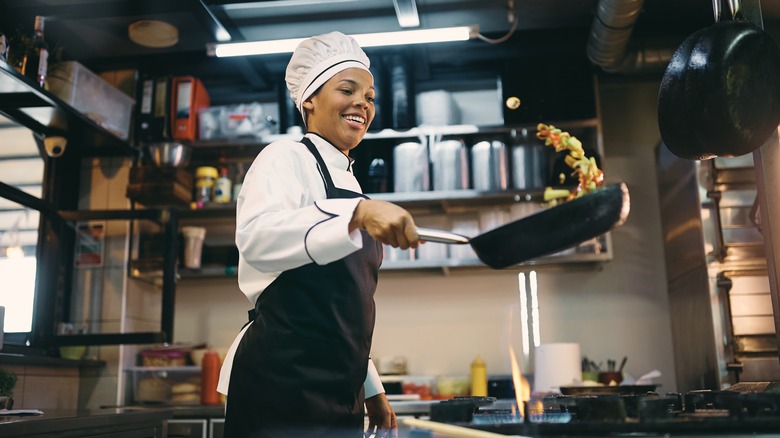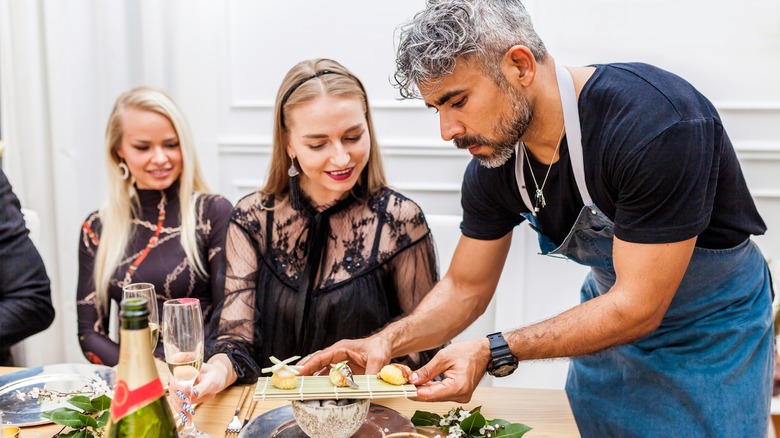Restaurant Chefs Have A Cheat Code Gig To Double Their Salary
Everyone loves extra money, and in this economy, we could all use it. Some use their side gig to explore other interests while others prefer to stay in the orbit of what they know. Restaurant chefs are no different, and there are plenty of options for earning some extra dough (pun intended) especially if they choose to stay within the food industry. According to Escoffier, chefs can offer their services by operating a ghost kitchen or sharing their knowledge by leading classes, whether it's a one-off themed lesson or a weeks-long course — even Gordon Ramsay got in on it with his MasterClass course.
If a chef wants to transition out of the demanding restaurant life, private chef and catering gigs are worth considering. If you're confident and price not only your services but your materials competitively, you could be looking at a lucrative side hustle — perhaps even doubling your salary, according to private chef Meredith Hayden (via Insider). According to Indeed, the average salary for a private chef in the U.S. is around $88,000, with some chefs making as much as $157,472 per year. Being your own boss as a private chef comes with the added benefit of not managing anyone under you and getting to set your own schedule, which is the holy grail for most people, restaurant chefs included.
Private chef gigs allow for flexibility and being your own boss
Restaurant jobs are taxing, chaotic, and hard on your body, not to mention you miss holidays with family and hanging out on the weekends with friends. However, private chefts can make their own schedules with multiple clients in a more relaxed atmosphere. According to private chef Becky Selengut, being a private chef is ideal because of the creative freedom. She said, "Witnessing the pleasure that I bring to my clients and their guests firsthand is a career perk that I do not take for granted." Restaurant menus hardly change, while each catering gig offers a different creative challenge. Planning and prep are made easier — with far less food waste — because private chefs know exactly how many people to serve, which is a rare thing in a restaurant setting.
But it's not all trips to idyllic farmers' markets and cooking in large, well-appointed private kitchens. According to private chef Meredith Hayden, being a private chef means you're alone a lot. Not many clients will have extra hands for you in the kitchen, so you're on your own, from shopping to prepping, cooking, and maybe even cleaning up. It also comes with lots of extras – and not the perks kind – like keeping track of expenses and taxes, maintaining business licenses and websites, and being your own PR person. Despite all that, we would say that's a fine tradeoff for more flexibility, more money, and being your own boss.

